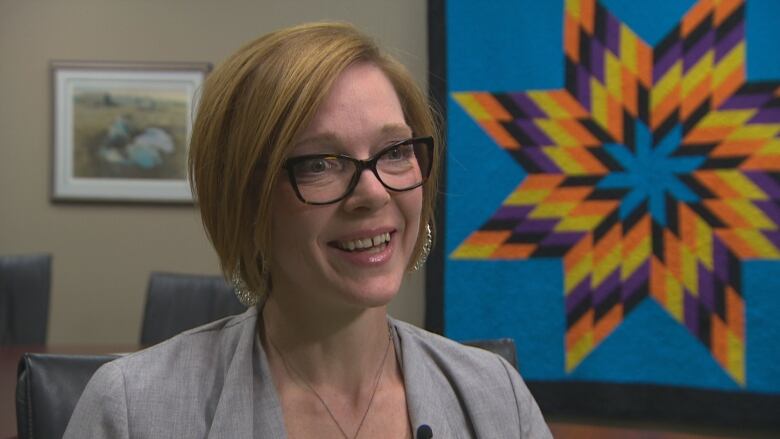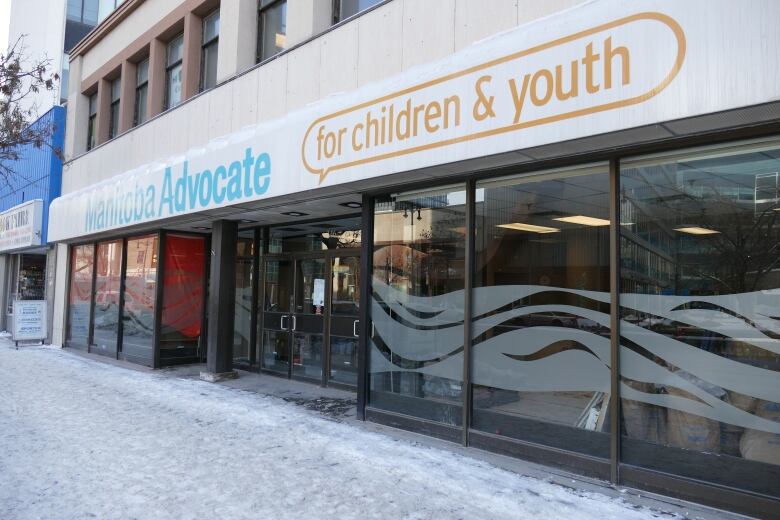Girl's death highlights need to expand disabilities services mandate, avoid unneeded CFS contact: advocate
Teen died in accident amid jurisdictional dispute over who could find care she needed

The life and tragic death of a teenage girl with a disability from rural Manitoba is at the centre of the latest report from the province's child advocate, which makes nine recommendations to improve services for youth with disabilities in the province.
The teen called Emmain the report from Ainsley Krone, Manitoba's acting advocate for children and youth died in an accident as jurisdictional disputes dragged on over who had the authority to find her an out-of-home placement. The report protects Emma's identity.
Emma was born with brain damage that caused her to have seizures, and was later diagnosed with disabilities that affected her mobility, behaviour andindependence, says the report, Bridging the Gaps: Achieving Substantive Equality for Children with Disabilities in Manitoba.
"While Emma's early childhood was stable, as she got older, her medical and behavioural needs increased," Krone said during a news conference on Thursday.
"She beganto have frequent seizures and would fall repeatedly. As she got older, she began self-harming."
'Family paid out of pocket'
The family first became involved with Child and Family Services during Emma's early years to resolve a dispute about respite increases and child-care access with Children's DisAbilityServices, the report says.
By Emma's final year,Children's DisAbilityServices reported "the family was struggling to manage, and there was a possibility Emma may enter CFS care in a crisis."
"The family paid out of pocket for respite services for many years," Krone said on Thursday.
"Through self-administered respite agreements, the family employed respite personnel and oversaw all aspects of service delivery including identifying respite worker burnout."
Meanwhile,the organizations in place to help them struggled to find the services their daughter needed.
Krone said that although her case manager was responsive in a crisis,"we foundin the years prior to the family pleading for supports,there were no documented family plans for Emmaand her family in her CDS file. Planning and supports were reactive, typically following a systems meeting or crisis."
Her death highlights systemic issues around services for youth with disabilities in the province that need to be addressed, including long wait times for service and a lack of alternative care options, Krone said in the report.
"Emma was a happy child. Those who knew her enjoyed her personality and spirit," Krone said.
"In the months before the tragic accident that resulted in Emma's death, [Children's DisAbilityServices] and [Child and Family Services] were unable to co-ordinate services effectively to meet the needs of Emma and her family."
At the top of the report's list of recommendations is a call for a new law to govern services for kids with disabilities and their families.

Krone said that would give those with expertise in disability care the mandate to oversee essential services, making sure kids aren't unnecessarily entering child welfare care just to get the help they need.
Of 53 kids with disabilities who entered child welfare in 2019-20, more than one-third of those cases cited their disability as a contributing factor something the report said can be prevented with the right supports available.
Marginalized families hit hardest
Many of the issues raised by Emma's case disproportionately impact marginalized families, such as newcomers, Indigenous people, single-parent households and those with low income, the report says.
Families that can advocate for themselves or afford to pay out-of-pocket to get the support they need may fare better but that's not an option for everyone.
"Effectively, this disadvantages the parents and caregivers that may need the most support," the report says.
Culturally sensitive services also need to be developed with more accurate information about First Nations, Mtis and Inuit kids, the report said.
For cases where disabled kids are in need of protection, the report also recommends developing a protocol to co-ordinate supports between Child and Family Services and Children's DisAbilityServices.
Consultations with caregivers and parents showed gaps in service are a reality for many kids with disabilities and their families, the report says.
It recommends funding a plan to reduce wait times for assessments to a maximum of six months by recruiting more people and developing supports to help wait-listed families navigate the system.
The report is based on an investigation into Emma's death and a statistical analysis of administrative data from Children's DisAbilityServices and Child and Family Services.
Roughly 400 youth with disabilities, service providers and experts participated in the creation of the report through interviews and consultations.
"What became abundantly clear from speaking with caregivers is while families told us that workers inside the disabilities system are skilled, knowledgeableand supportive, resources are scarce and are stretched too thin," Krone said.
"As a result, families are struggling with the services that are available to them. Further, while the global pandemic has worsened existing service gaps, the challenges are not new."
The report also recommends analyzing caseloads at Children's DisAbilityServices to make sure staffing levels are adequate.
"I understand that some of the recommendations that I'm making today will require additional investments in the system, and shifting of existing resources, but these changes are imperative if we are going to achieve substantive equality for all children and youth in our province, like Emma deserved," Krone said.
In addition, it says regular feedback on services from kids and families needs to be gathered, a policies and procedures manual for Children's DisAbilityServices needs to be made public and more flexible respite support services are needed for families.
With files from Caitlyn Gowriluk and Cameron MacLean












_(720p).jpg)


 OFFICIAL HD MUSIC VIDEO.jpg)
.jpg)



























































































